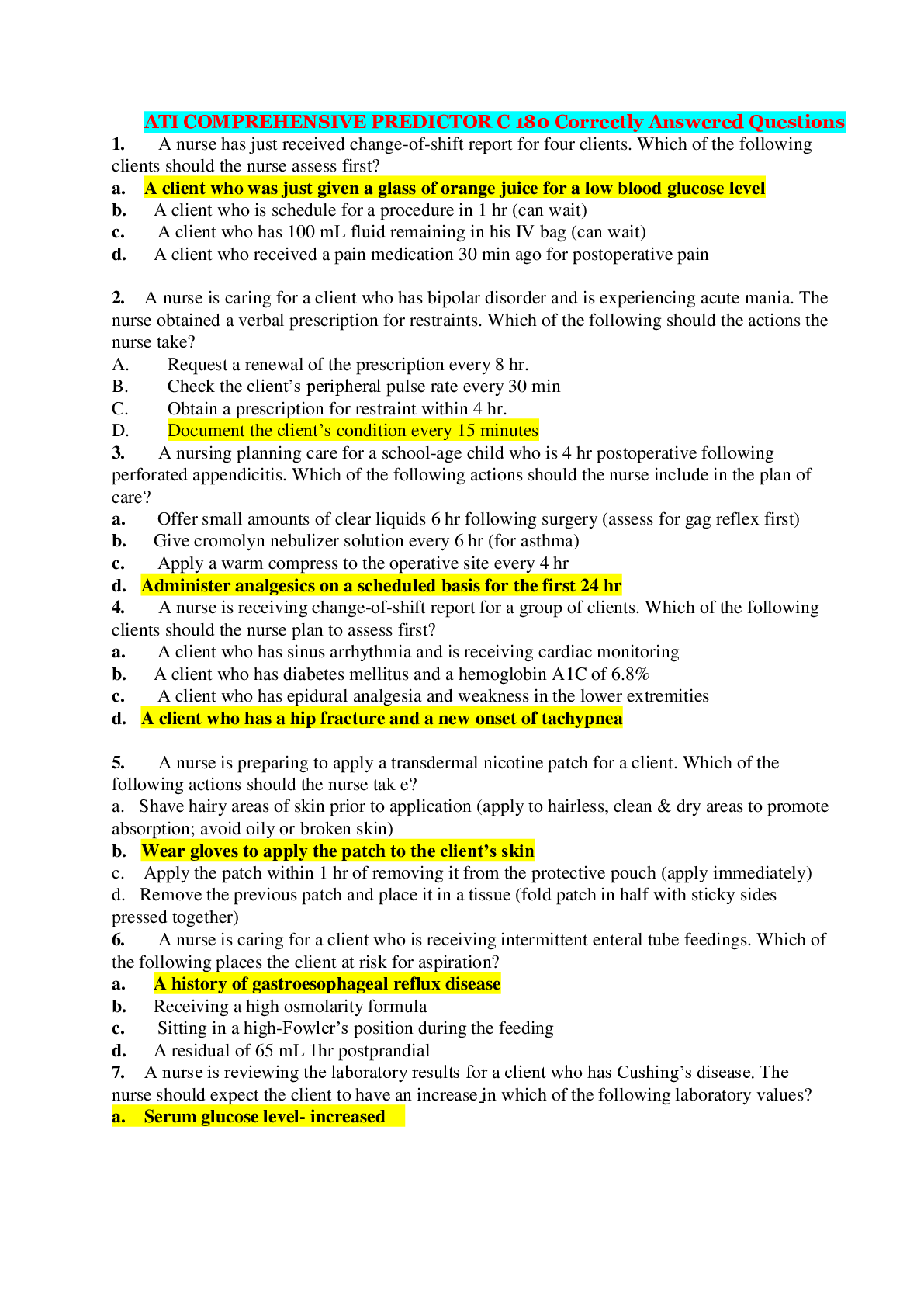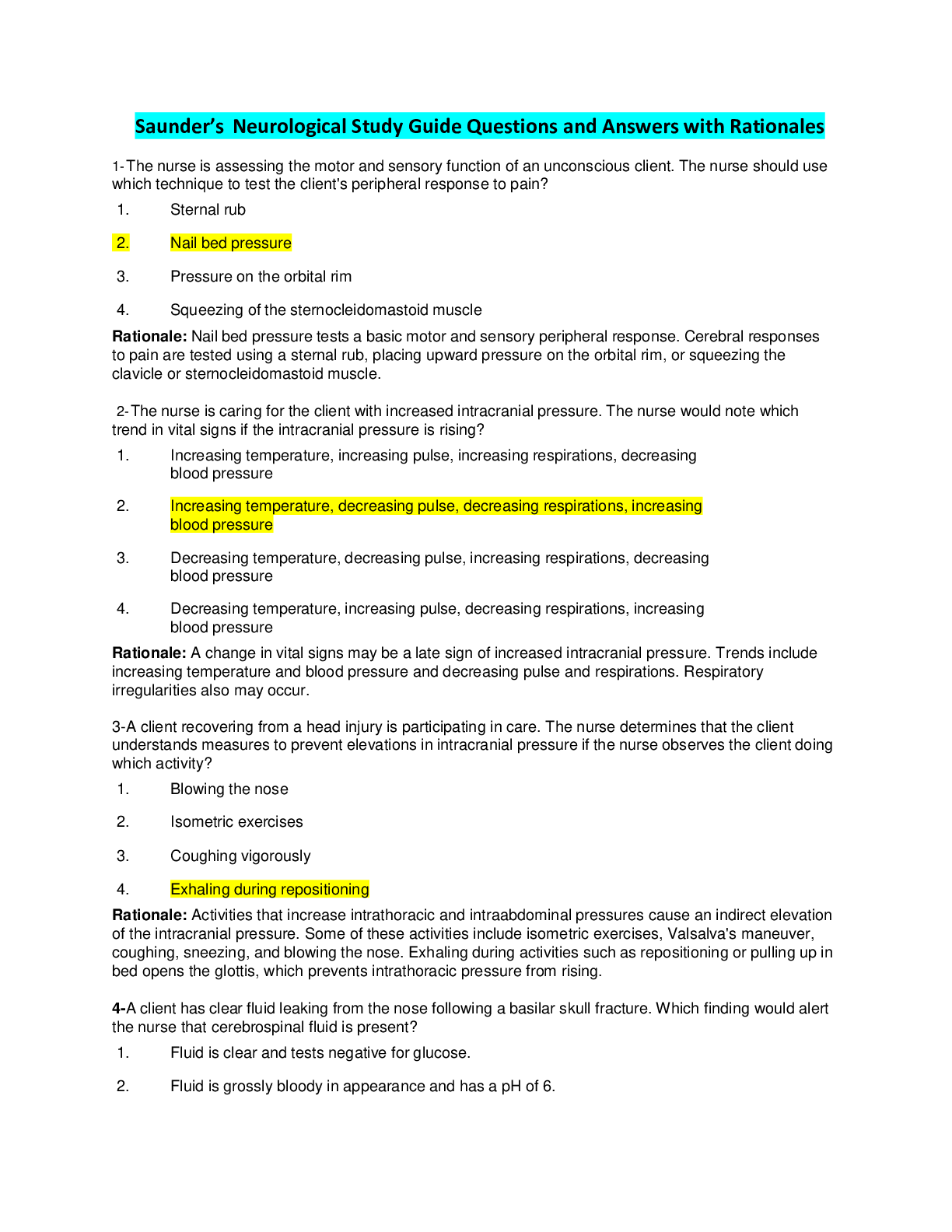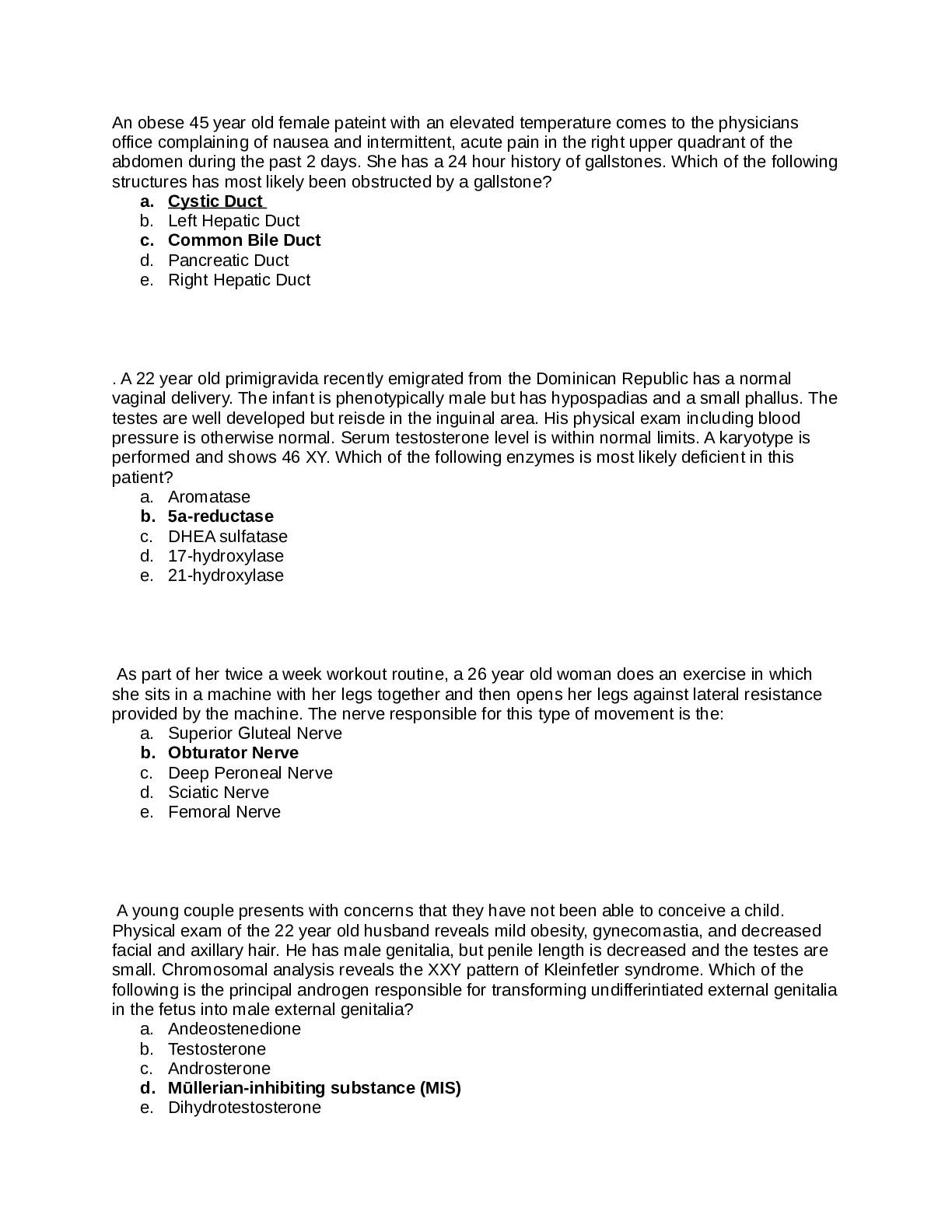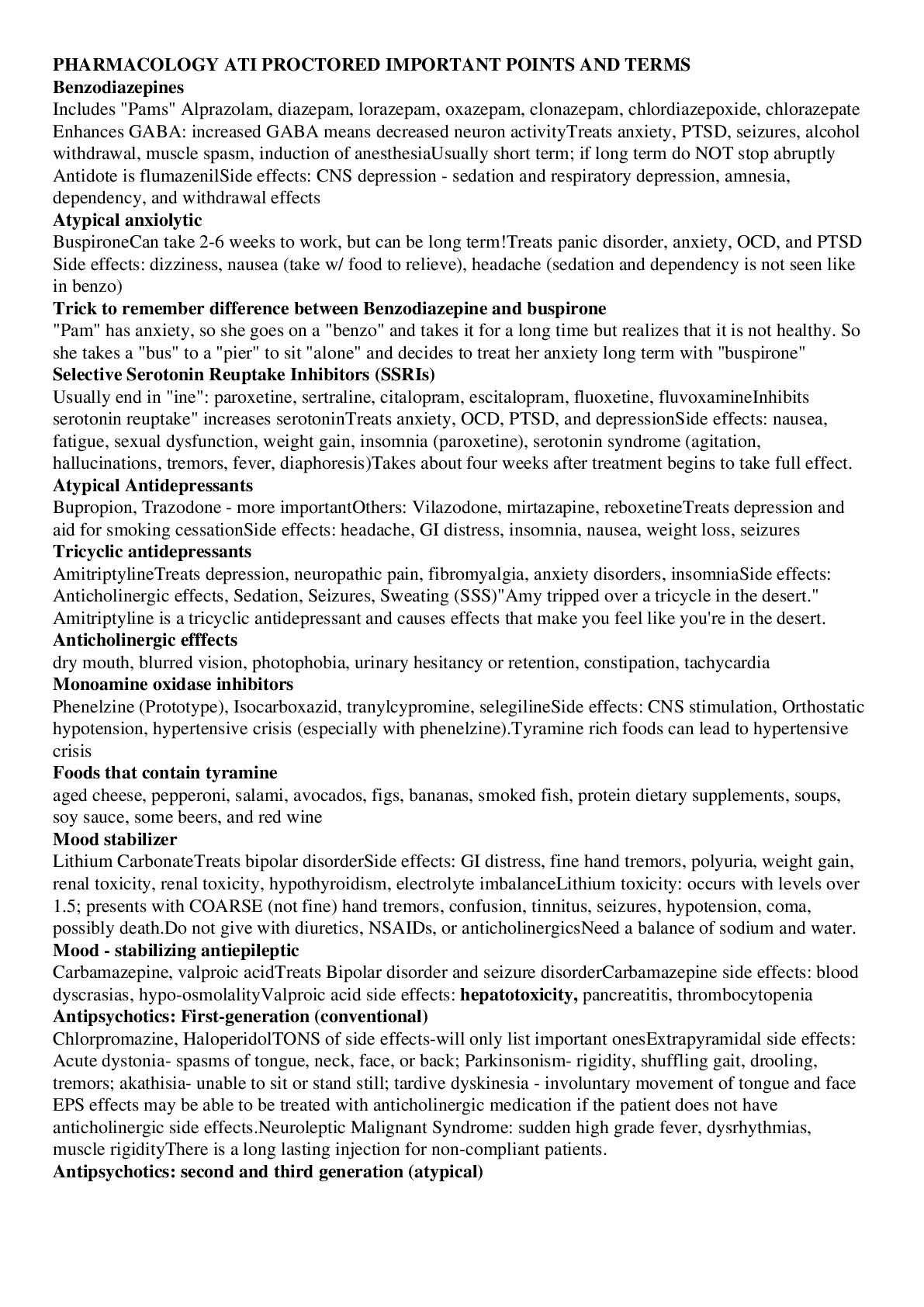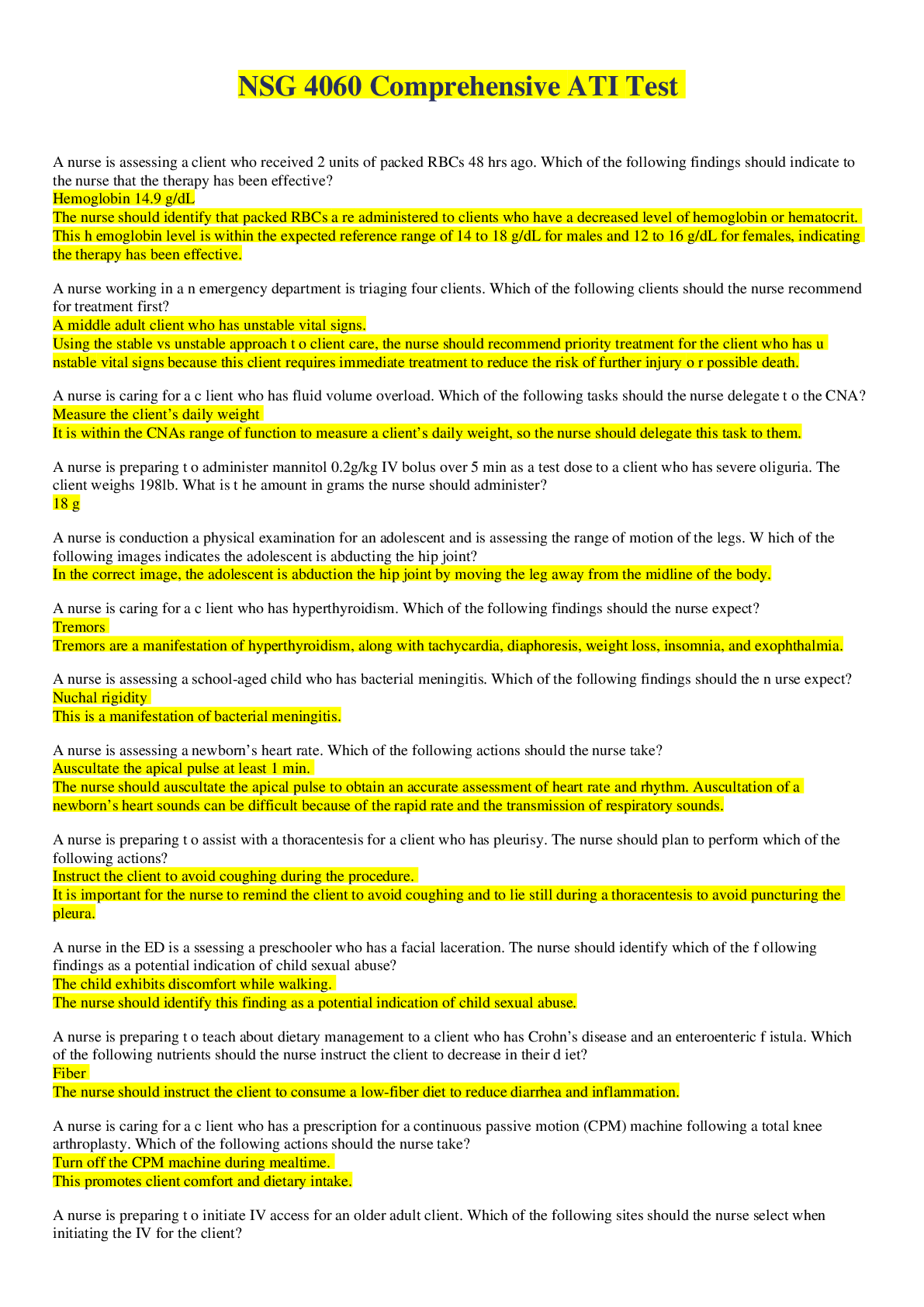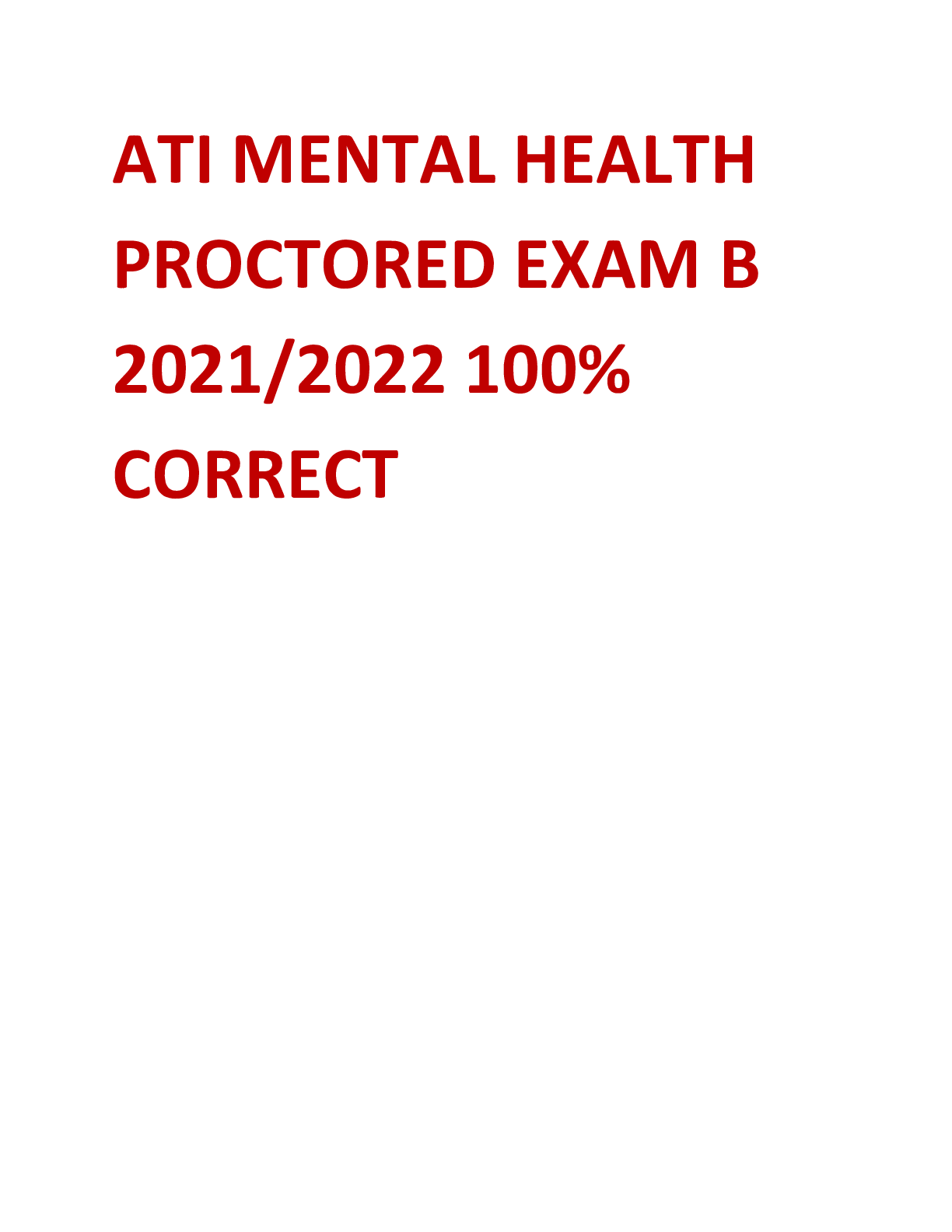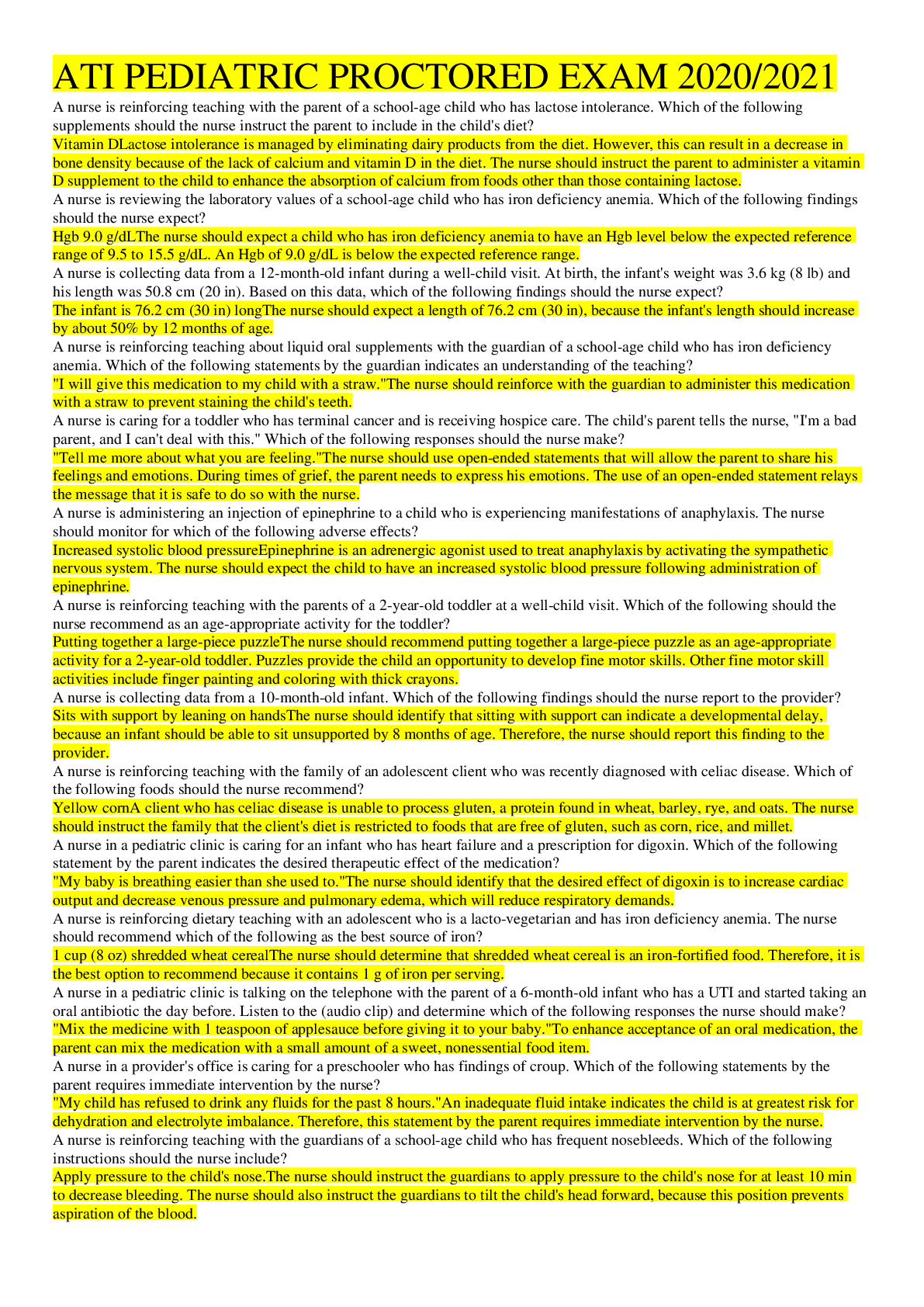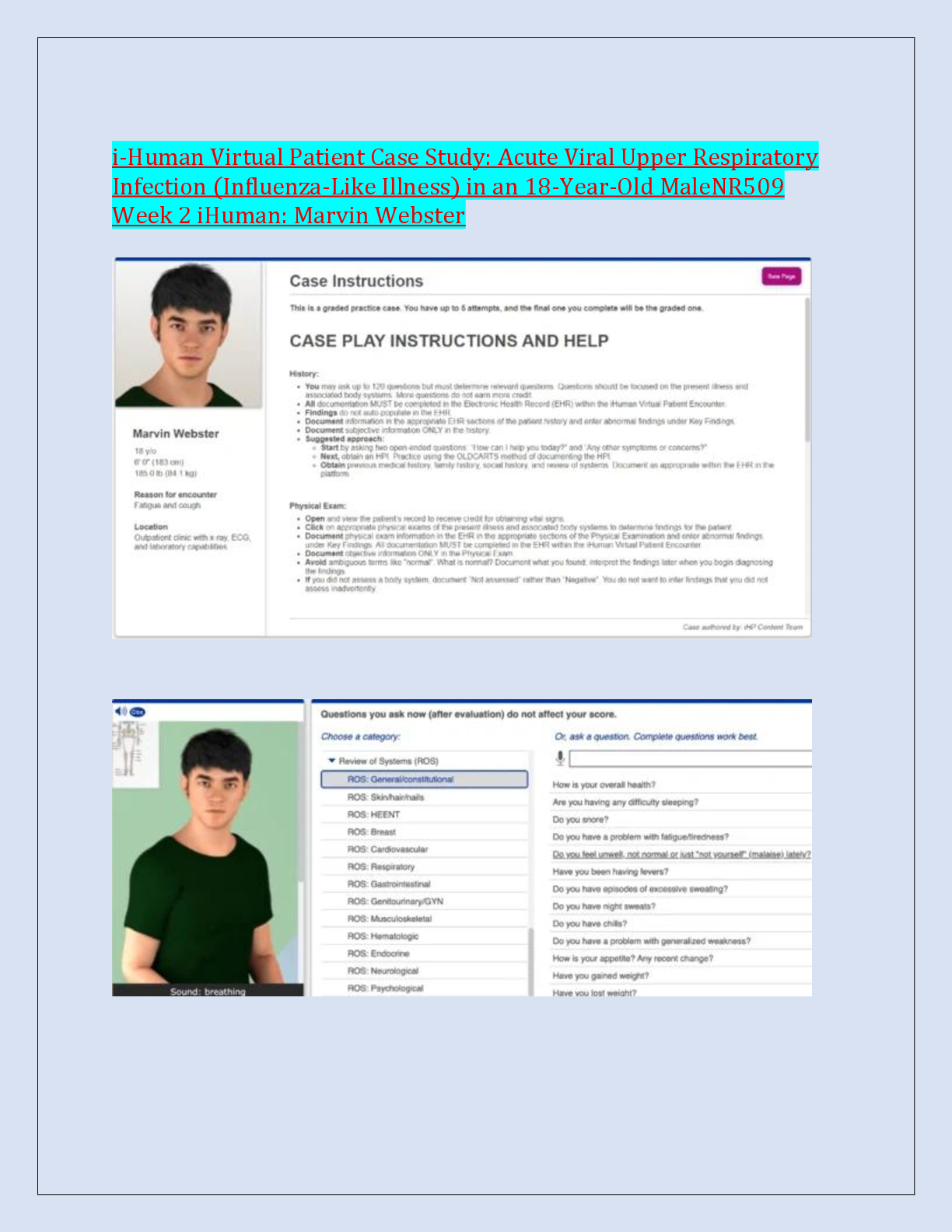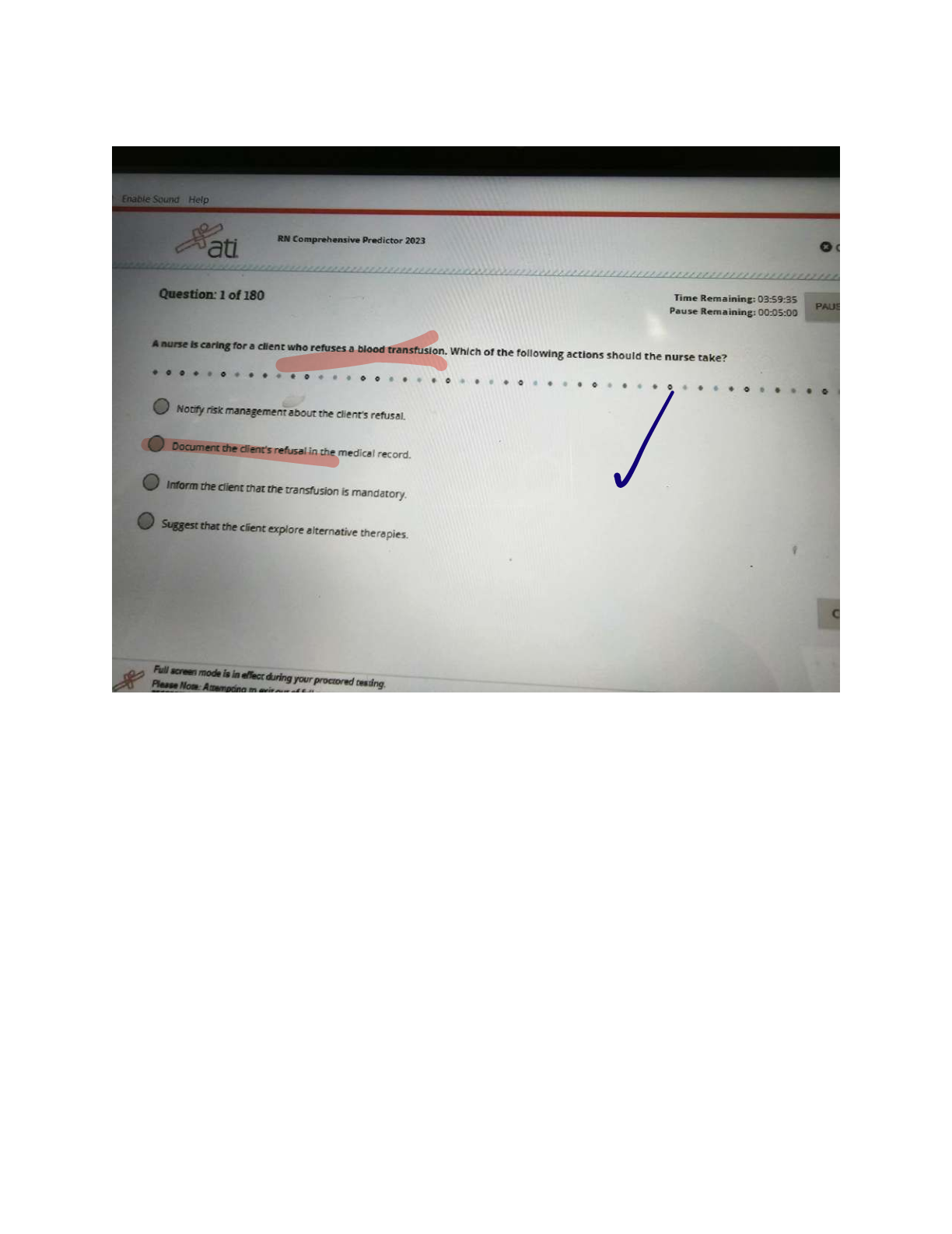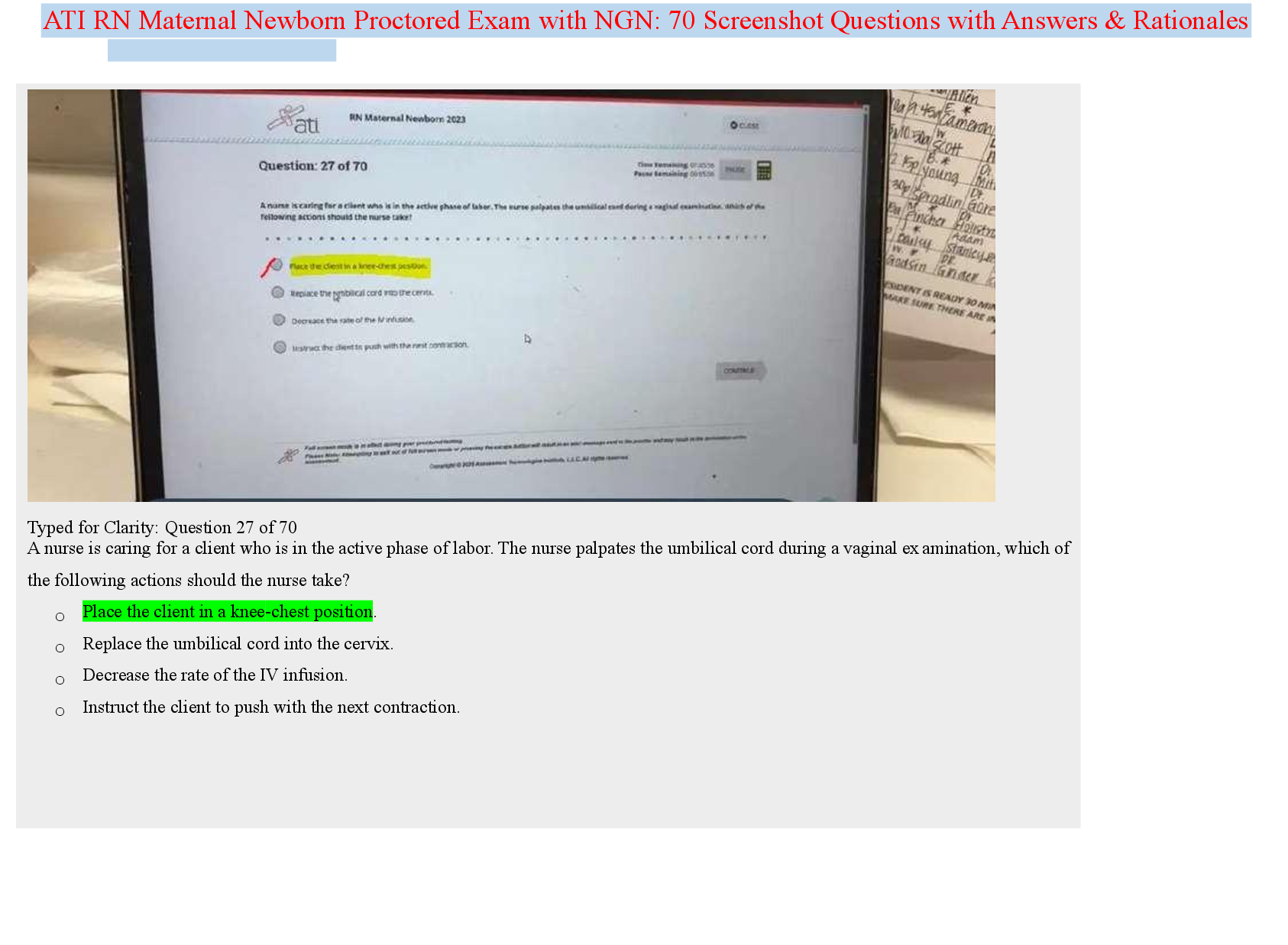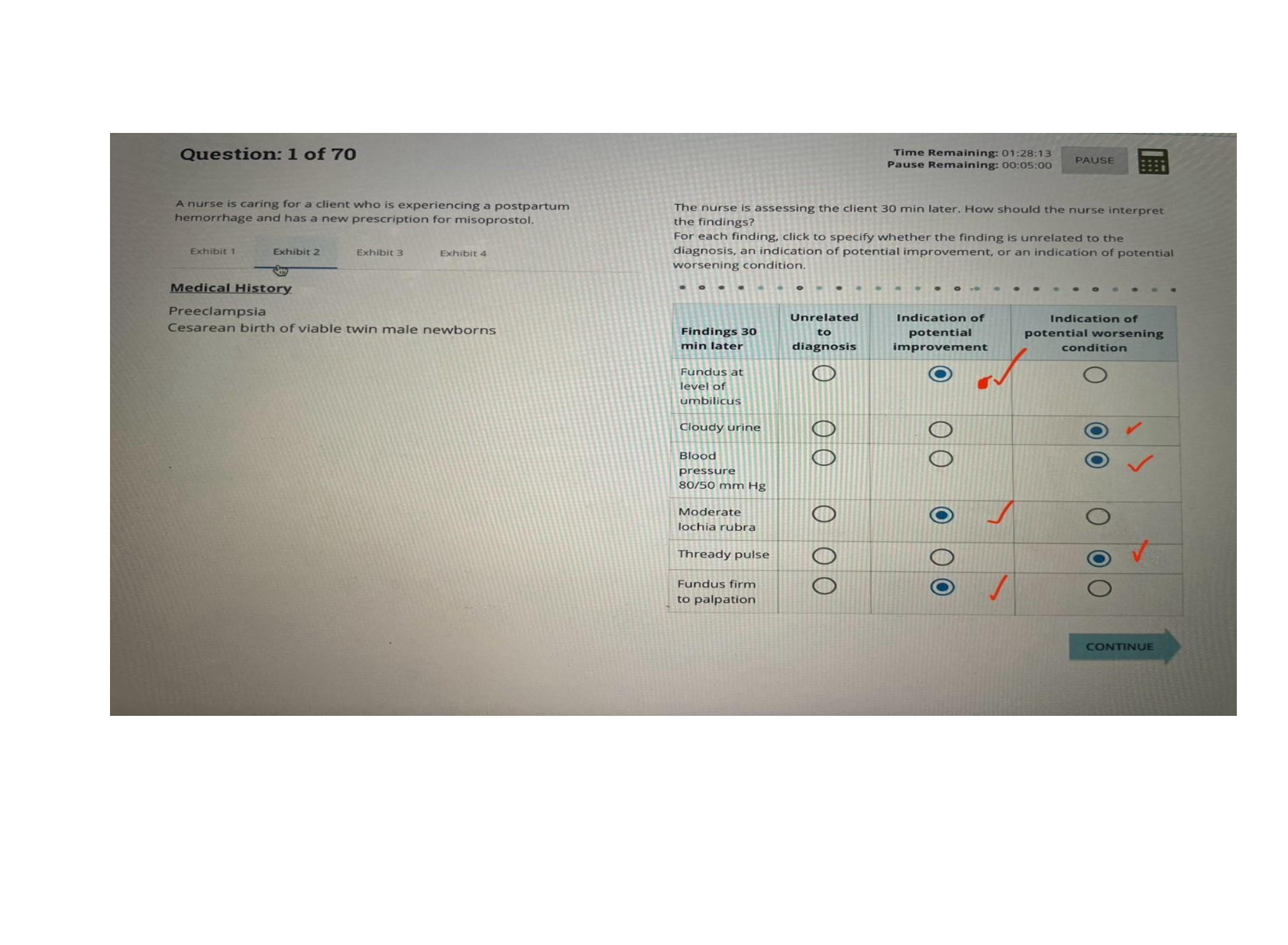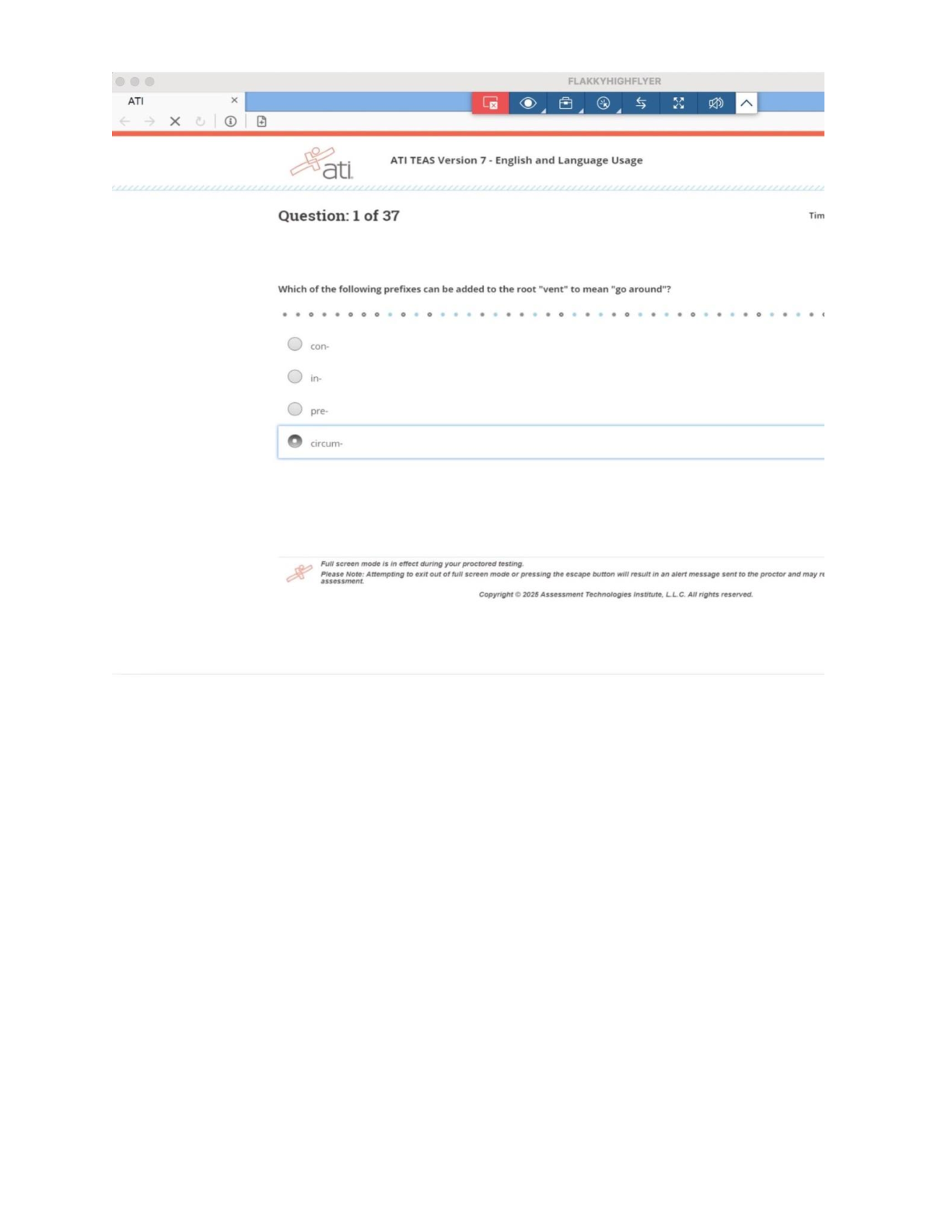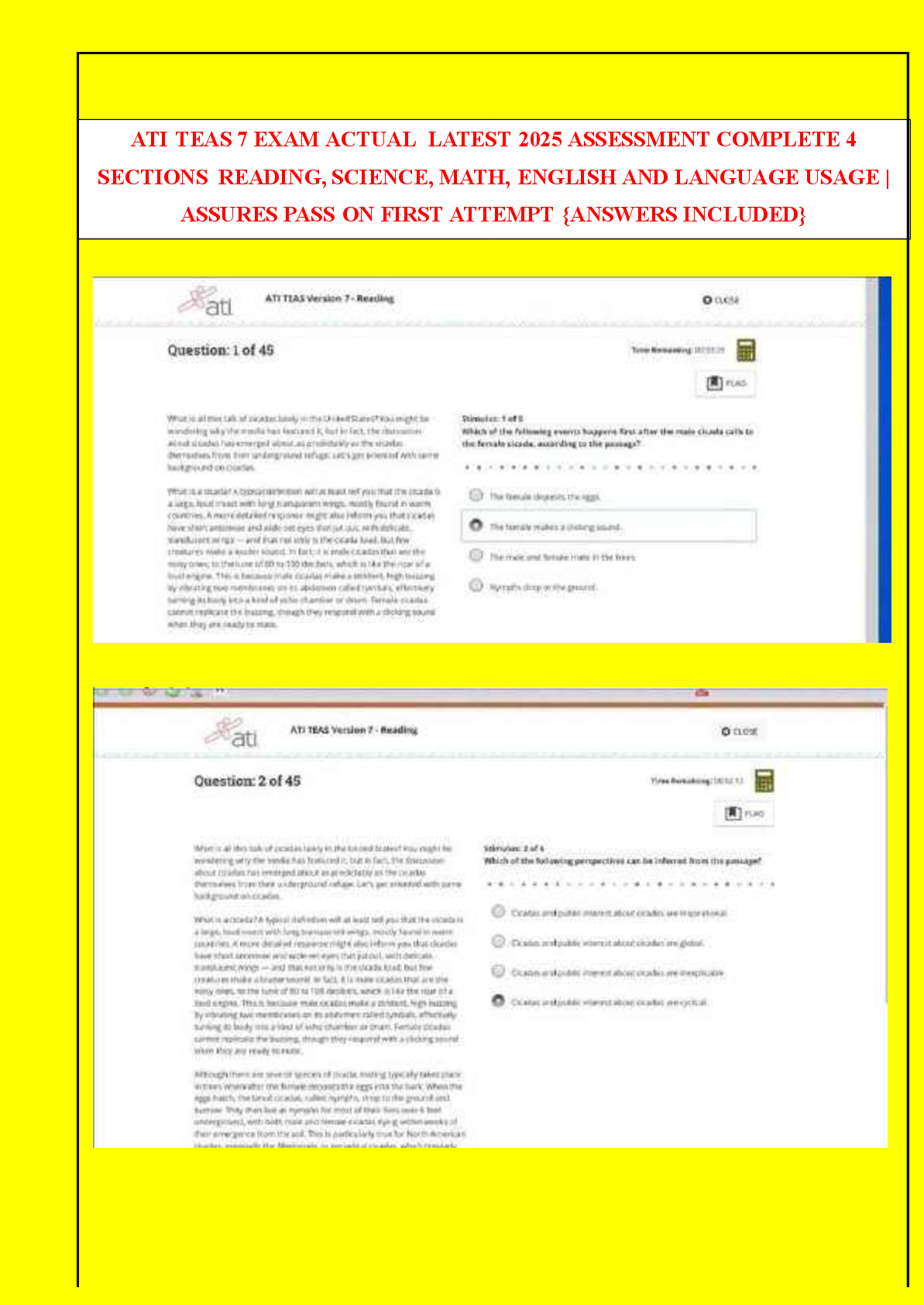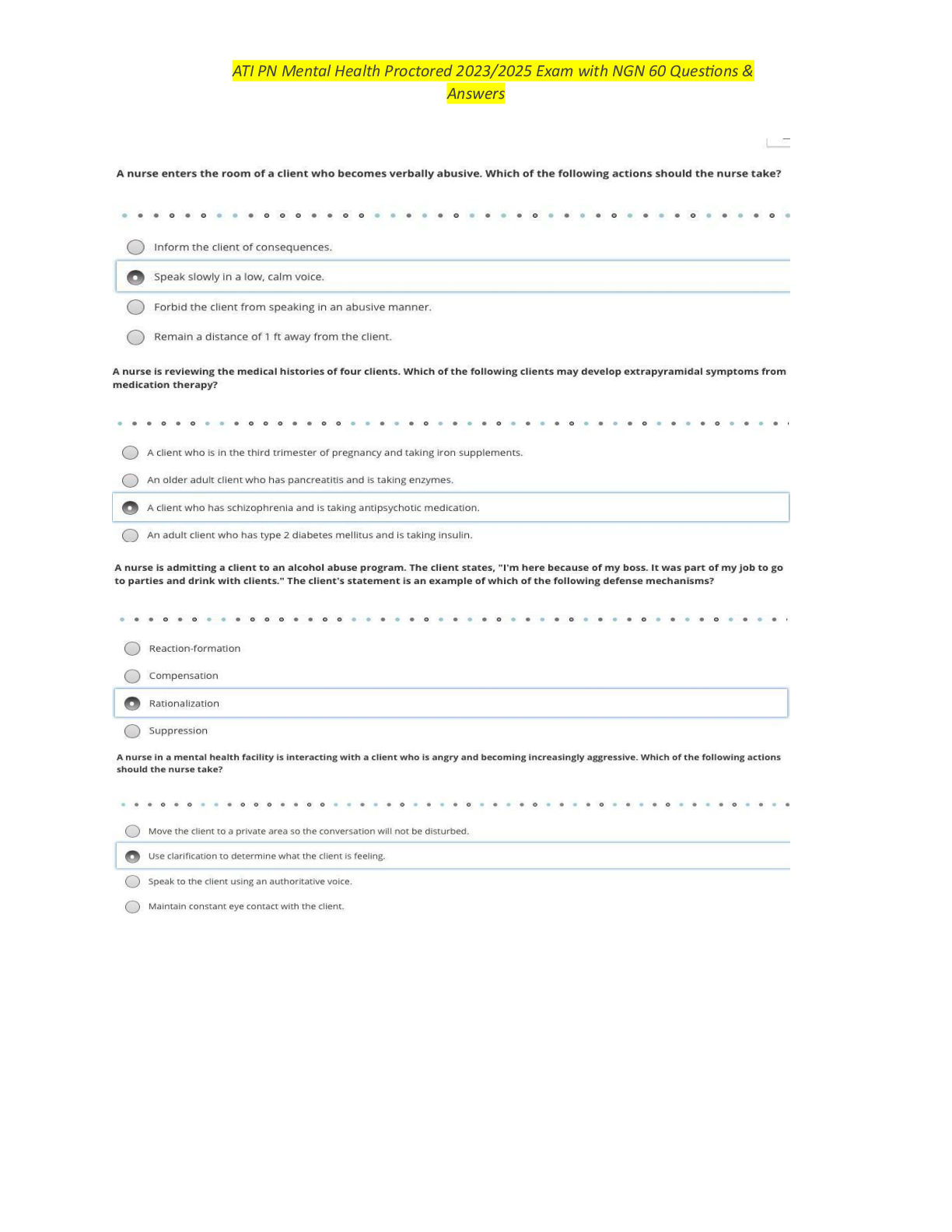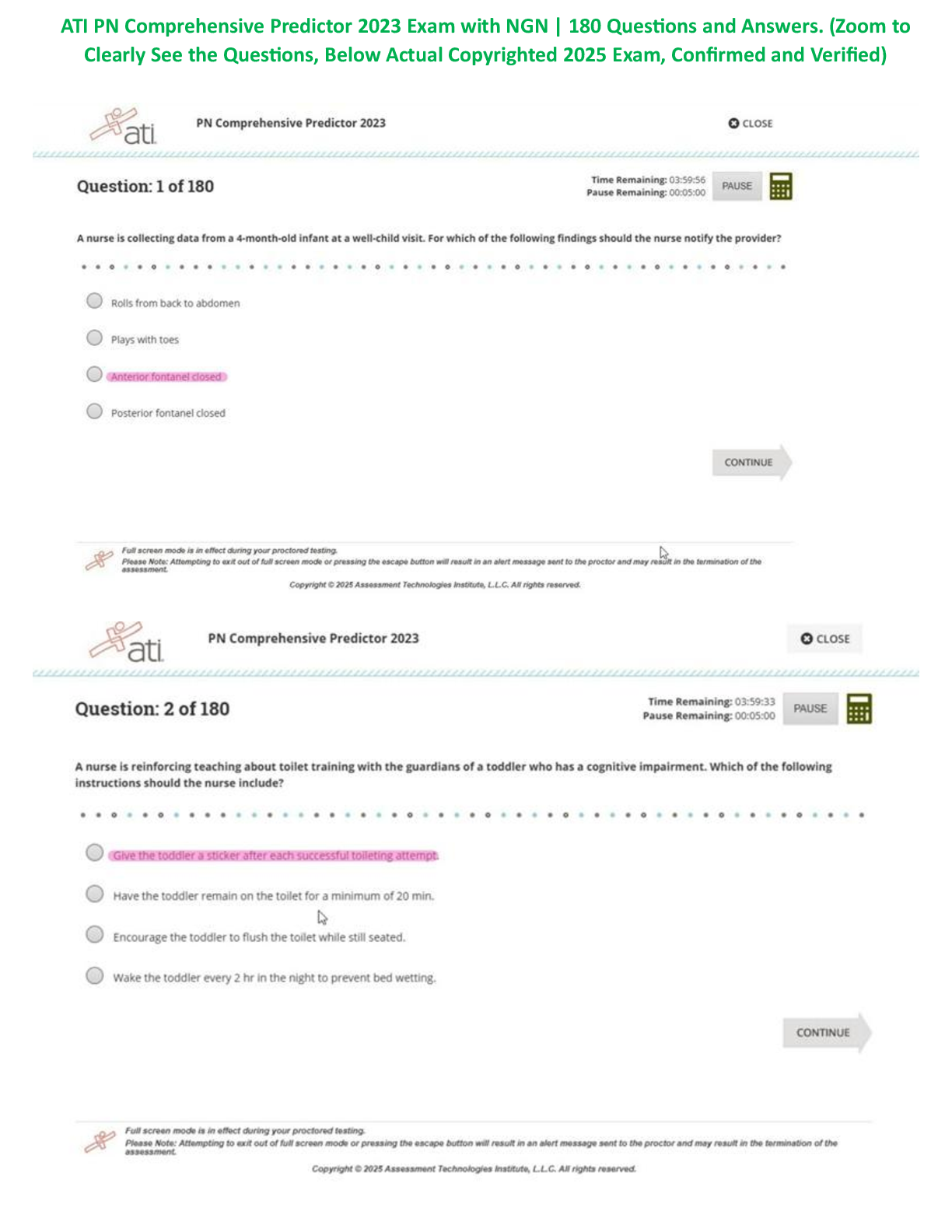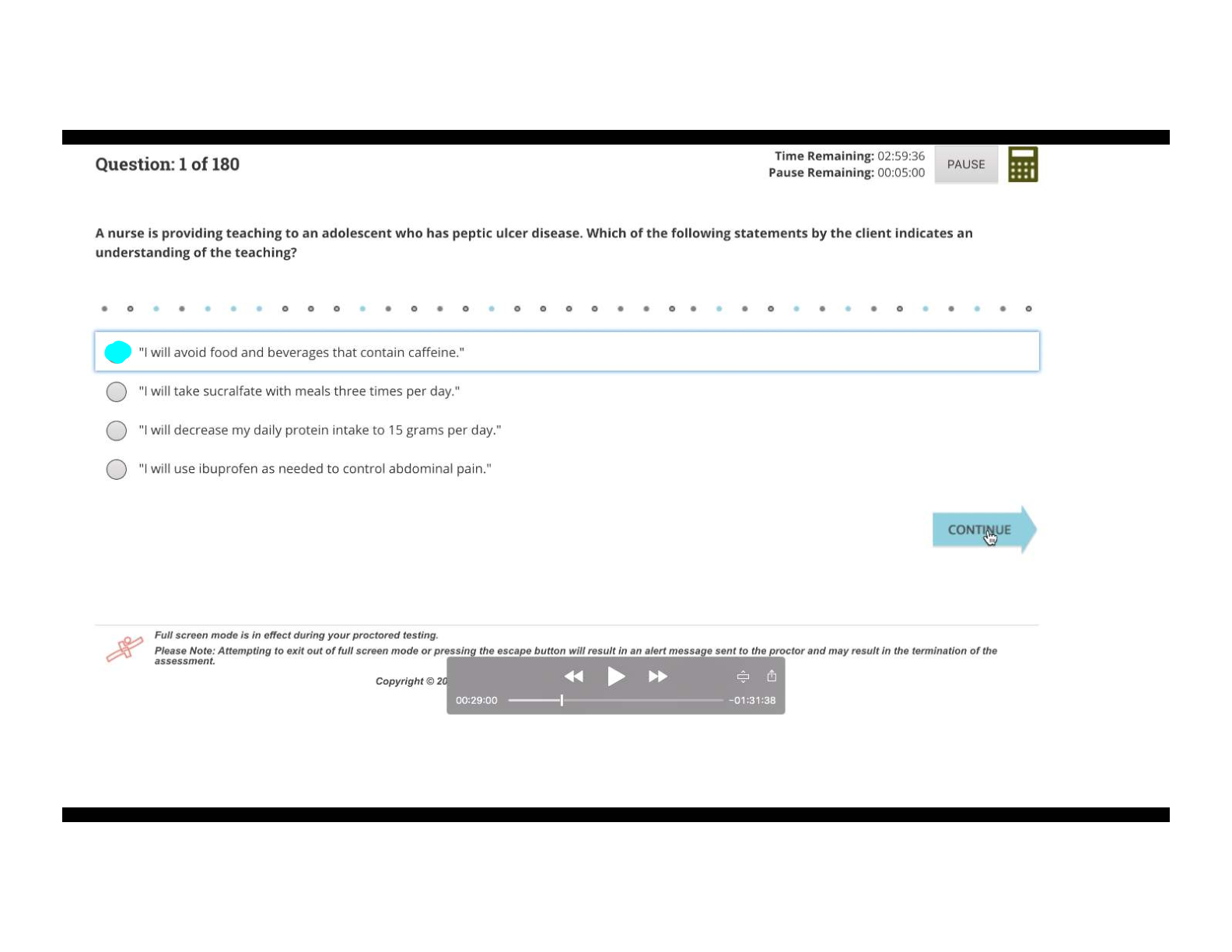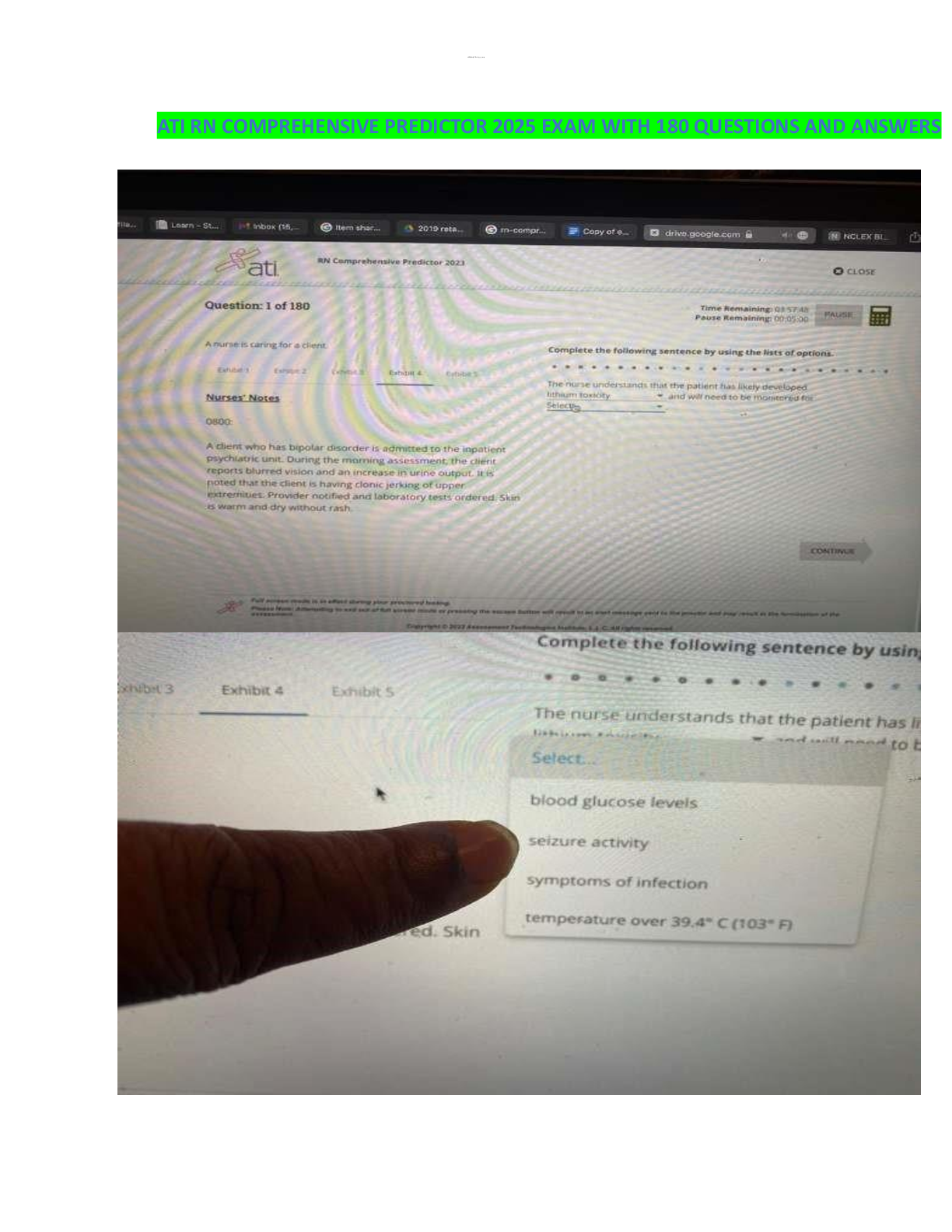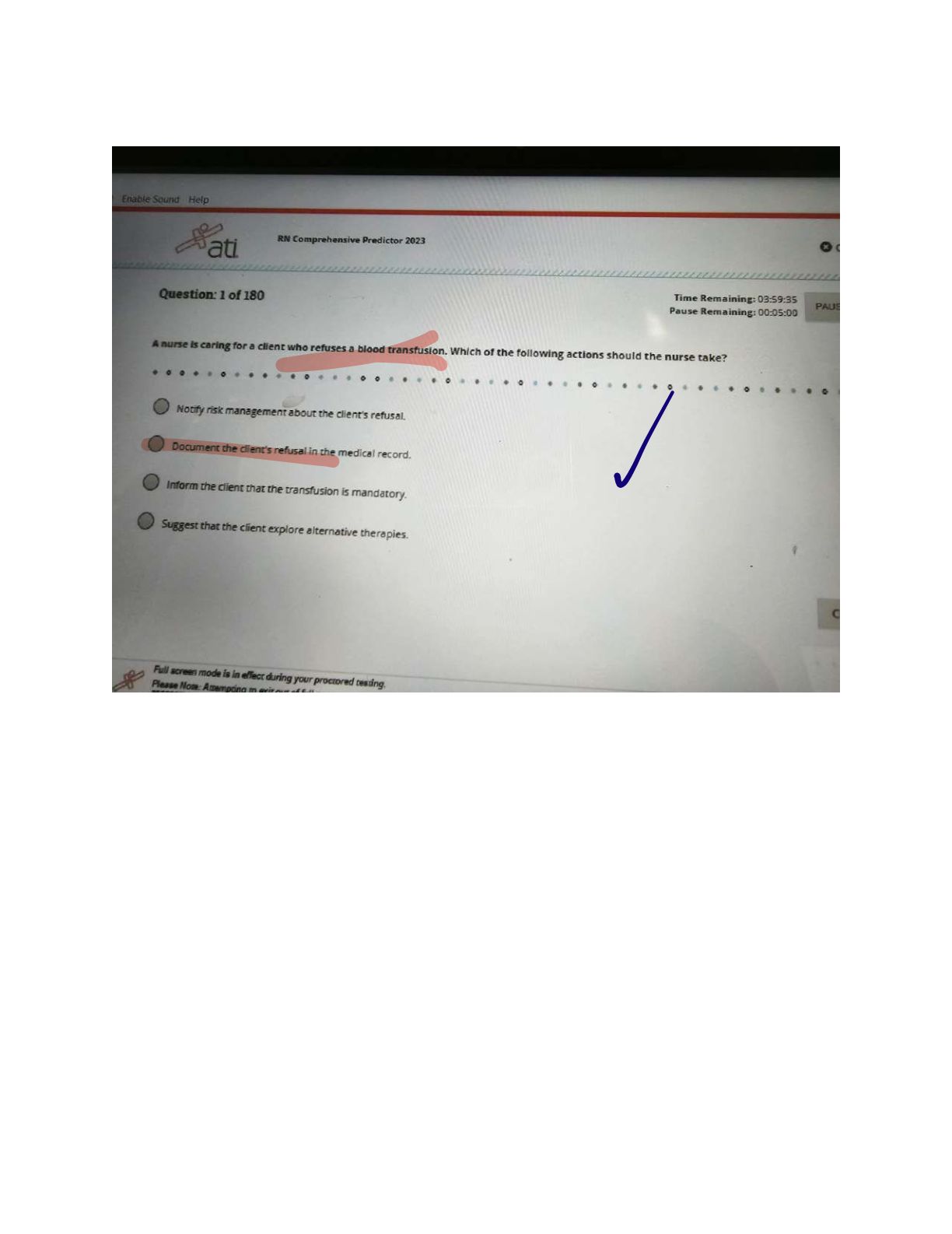ATI PN COPREHENSIVE 2020 PROCTORED
1.The nurse is discussing future treatments with a client who has a terminal illness. The nurse notes that the client has not been eating and responds to the nurses information by sayi
...
ATI PN COPREHENSIVE 2020 PROCTORED
1.The nurse is discussing future treatments with a client who has a terminal illness. The nurse notes that the client has not been eating and responds to the nurses information by saying, What does it matter? The most appropriate nursing diagnosis for this client is:
2.The nurse recognizes that anticipatory grieving can be most beneficial to a client or family because it can:
3.A newly graduated nurse is assigned to his first dying patient. The nurse is best prepared to care for this client if he:
4.The family of a client with a terminal illness will be able to help provide some psychological support to their family member. To assist the family to meet this outcome, the nurse plans to include in the teaching plan:
5.The nurse is assigned to a client who was recently diagnosed with a terminal illness. During morning care, the client asks about organ donation. The nurse should:
6.A client, who is receiving chemotherapy on a medical unit due to a recent diagnosis of terminal cancer of the liver, has an in-depth conversation with the nurse. The client says, This cannot be happening to me. The nurse identifies that this stage is associated with, according to Kbler-Ross:
7.A family is grieving after learning of a family members accidental death. The transplant coordinator requests to talk with the family about possible organ and tissue donation. The nurse recognizes that
8.A client who is Chinese American has just died on the unit. The nurse is prepared to provide after-death care to the client and anticipates the probable preferences of a family from this cultural background will include:
9.The nurse is providing care to a dying client. Which of the following is the primary concern? The nurse should:
3. Allow the client to be alone and expect isolation on the part of the dying person
4. Intervene in the clients activities and promote as near normal functions as possible
10.There is a different focus for the client with hospice nursing care. The nurse is aware that client care provided through a hospice is:
11.A cancer patient asks the nurse what the criteria are for hospice care. What should the nurse answer?
12.To provide comfort for the client, while preparing to assist the client in the end stage of her life in response to anticipated symptom development, the nurse plans to:
13.To maintain the clients sense of self-worth during the end of life while working with a client in an inpatient hospice unit, the nurse should:
14.The nurse finds a client who has been diagnosed with terminal lung cancer quietly crying. Which of the following nursing responses most reflects a need for additional guidance regarding therapeutic communication with a dying client?
15.A terminally ill client shares with the nurse that he, needs to tell someone what I want when the end comes. The nurses most therapeutic response is:
16.The wife of a client recently diagnosed with end-stage renal failure shares with the nurse that, He just accepts this; I want a second opinion. The nurse recognizes that while the client has reached the acceptance stage of grieving, his wife is experiencing the:
17.The nurse recognizes that which of the following clients is at greatest risk for complicated (dysfunctional) grief?
18.Experiencing normal grief over losses allows the adolescent to successfully:
19.A client who recently experienced an amputation of the left thumb has a perceived loss of physical attractiveness. The nurse recognizes that such a loss is:
20.A nurse encounters a family that experienced the death of their adult child last year. The parents are talking about the upcoming anniversary of their childs death. The nurse spends time with them discussing their childs life and death. The nurses action best demonstrates which nursing principle?
21.Which of the following statements, made by a nurse regarding the means by which older adults usually express and manage grief, reflects a need for further instruction and clarification?
22.The nurse is caring for a terminal ill client in the final stages of the death process when the clients daughter asks, Why are you putting drops in dads eyes? The nurse responds more accurately by telling the daughter that:
23.A severely depressed patient cannot state any positive attributes to his or her life. The nurse patiently sits with this patient and assists the patient to identify several activities the patient is actually looking forward to in life. The nurse is helping the patient to demonstrate which spiritual concept?
24.The palliative teams primary obligation to a patient in severe pain includes which of the following?
25.A man is hospitalized after surgery that amputated both lower extremities owing to injuries sustained during military service. The nurse should recognize his need to grieve for what type of loss?
26.The nurse has had three patients die during the past 2 days. Which approach is most appropriate to manage the nurses sadness?
27.A woman is called into her supervisors office regarding her deteriorating work performance since the loss of her husband 2 years ago. The woman begins sobbing and saying that she is falling apart at home as well. The woman is escorted to the nurses office, where the nurse recognizes the woman's symptoms as which of the following?
28.The mother of a recently murdered child keeps the childs room intact. Family members are encouraging her to redecorate and move forward in life. The visiting nurse recognizes this behavior as _____ grief.
29.Validation of a dying persons life would be demonstrated by which nursing action?
30.During a follow-up visit, a woman is describing new onset of marital discord with her terminally ill spouse. Using the Kbler-Ross behavioral theory, the nurse recognizes that the spouse is in which stage of dying?
31.Enuresis is reported in a previously toilet trained toddler. While gathering a health history from the grandparent, the nurse asks about which factor as the most likely cause?
32.Mrs. Harrisons father died a week ago. Mr. Harrison is experiencing headaches and fatigue, and keeps shouting at his wife to turn down the television, although he has not done so in the past. Mrs. Harrison is having trouble sleeping, has no appetite, and says she feels like she is choking all the time. How should the nurse interpret these assessment findings as the basis for a follow-up assessment?
33.Which of the following is an example of a perceived loss?
34.A woman has had a breast removed to treat cancer. What type of loss will she most likely experience?
35.A family member of a dying patient talks casually with the nurse and expresses relief that she will not have to visit at the hospital anymore. Which theoretical description of grief best applies to this family member?
36.Which factors influence a person's approach to death?
37.Which comment to a patient by a new nurse regarding palliative care needs to be corrected?
38.What are the physical changes that occur as death approaches?
[Show More]
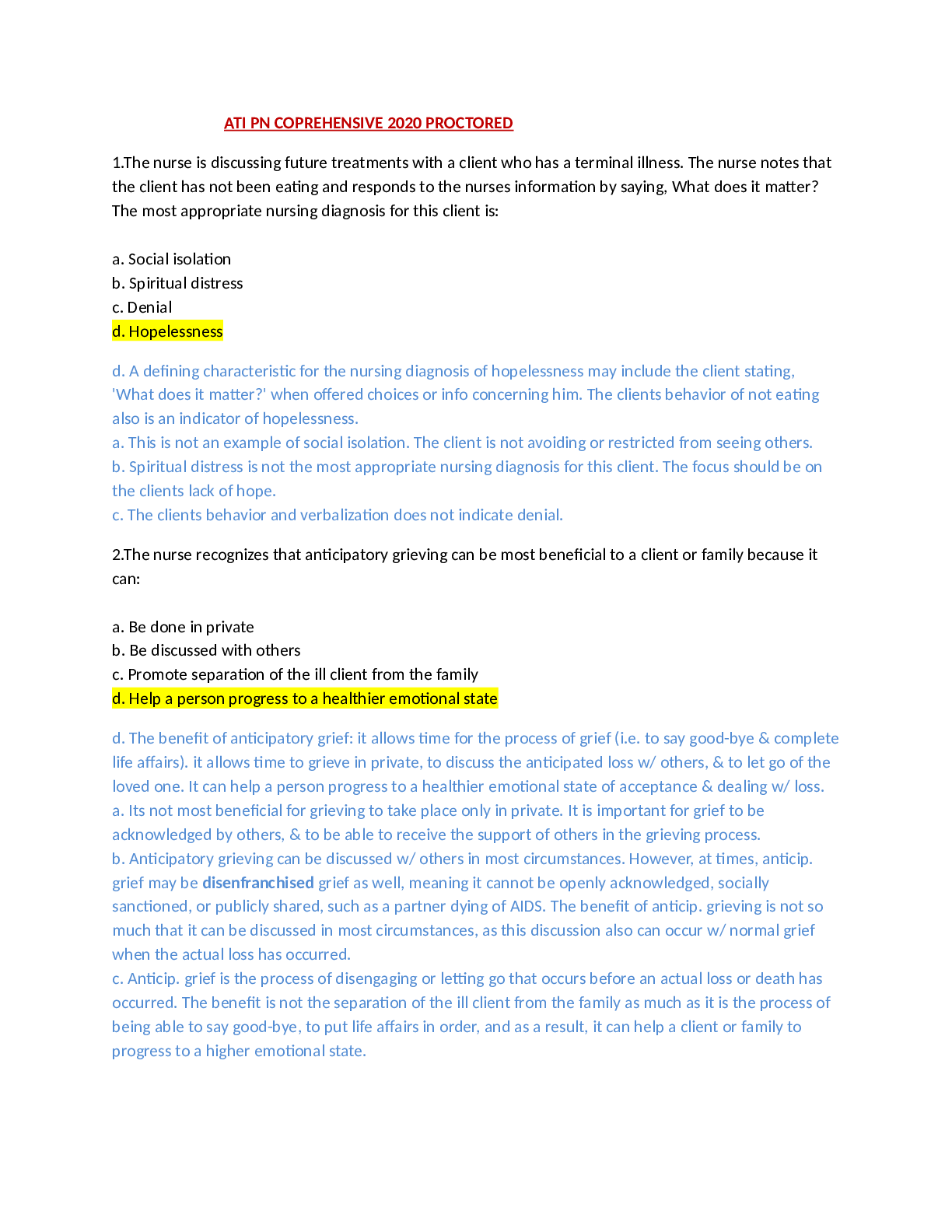


.png)
